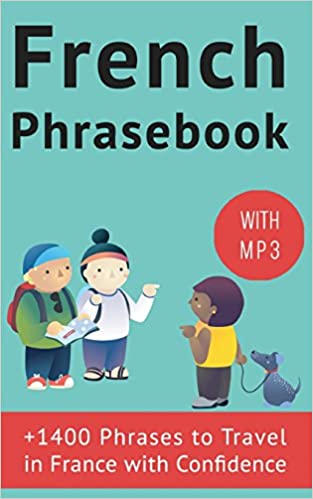Spoken French is, as should be expected, quite different from textbook French. The vocabulary French people use in everyday life is more colloquial. They tend to shorten words, their sentences are structured differently, and they also use many French filler words.
Like “uh”, “right”, “like” and so on in English, those words fill silences during speech and give a better flow to your thoughts. It may not be the most elegant form of communication, but you will sound a lot more French if you use them.
Here are some of the filler words you should master to speak French like a native.

1. Hein
Hein (pronounced [ɛ̃]) is a very common filler word in French. It can loosely be translated in English by “right?” or “isn’t it?” and is often used at the end of a sentence to emphasize a statement.
| C’était un super concert, hein? | That was a great concert, wasn’t it? |
Used alone in a question, hein can also be translated as huh in French if you didn’t understand your interlocutor.
So when you want to huh in French just use hein.
| « Dépêche-toi, on est en retard ! » « Hein ? » | “Hurry up, we ‘re late!” “Huh?” |
2. Euh
Euh is pronounced [ø] and may be the most common filler word in French. You will likely hear it dozens of times in any casual conversation among native speakers. It is the equivalent of “uh” or “hum” in English and is used to insert a pause in a statement when the speaker isn’t sure of him or herself or hesitates on what to say next.
That’s a convenient word for French learners: if you need time to find the right word, just use “Euh” and no one will know better!
| Prenez la première route à droite et après… euh… ce sera sur votre gauche | Take the first road on the right and after… uh.. it will be on your left. |
3. Quoi
Quoi (pronounced [kwa]) has different uses in French. Although it means “what” and is usually used in questions, it can also be used as a filler word which can make things complicated for French learners.
When it is not followed by a question mark, it is the French equivalent of “you know’ in English. It is used as an emphasis on a statement but can also signify that the speaker is feeling frustrated or impatient.
| Tu fais quoi? | What are you doing ? |
| Je suis fatigué, quoi… | I’m tired, you know… |
| Tourne à droite, quoi ! | Take a right, c’mon ! |
4. Tu vois
Tu vois is pronounced [ty vwa] and you probably know it as its typical translation of “you see”. However, it can also be used as a filler word and roughly equivalent to “you know?” in English. It is usually used at the end of a sentence as a rhetorical question.
| C’est une fille sympa, tu vois ? | She is a nice girl, you know? |
5. Ben
Ben ([bɛ̃]} is the shortened version of bien (“well”). It is used as a filler word in French either at the beginning or in the middle of a sentence. It is used to mark many things, from indecision to questions, statements, commands and sometimes before yes or no to emphasis the meaning.
| Tu viens ce soir? Ben oui ! | Are you coming tonight? Duh, yes! |
| Ma cousine.. ben… je sais pas. | My cousin, well, I don’t know |
6. En fait
Unlike other filler words, En fait (pronounced [ɑ̃ fɛ]) is used both in written and spoken French. It literally translates as “in fact” but its casual meaning is closer to “actually”. It is usually used at the beginning of a sentence.
| Viens à huit heures ce soir ! En fait, viens à sept heures ! | Come at eight tonight! Actually, come at seven! |
7. Bon
Like “ben”, “bon” translates as “well”. It is used to emphasize a thought but can also mark the speaker’s impatience or anger. Its English equivalent would be “ok”.
| Bon, allons-y! | Okay, let’s go ! |
| Bon, alors ? | Well, then ? |
| Ah bon ? | Really ? |
8. Genre
The literal meaning of genre ([ʒɑ̃ʁ]) is “gender” or “type”. However, when it is used as a filler word, it is the French equivalent of “like” in English.
| J’ai besoin d’une robe pour la fête. Genre, assez habillée. | I need a dress for the party. Like, kind of dressy. |
9. Enfin bref
Enfin bref ([ɑ̃fɛ̃ bʁɛf]) is a convenient way to say “long story short”, “basically” or “anyway” to get straight to the point and avoid a long conversation.
| Je cherchais mes lunettes. Enfin bref, elles étaient sur mon nez. | I was looking for my glasses. Anyway, they were on my nose. |
10. Quand même
Quand même has two meanings. Its primary translation, especially in more formal settings, is “even though” or “still”.
| L’examen était difficile. Mais quand même, j’ai réussi. | The exam was tough. But still, I passed. |
However, it can also be used as a filler word to mark the speaker’s astonishment and translates as “wow!”.
| « L’avion avait trois heures de retard. » « Ah, quand même ! » | “The plane was three hours late.” “Oh wow! “ |
You will likely notice more and more filler words in French as you become more familiar with the language. They are also frequently combined together, which gives the speaker more time to gather his or her thoughts or add more emphasis to a statement.
| Bon ben, c’est l’heure de rentrer. | Well then, it’s time to go home. |
| Je ne me sens pas bien. Genre, tu vois, j’ai vraiment mal à la tête. | I’m not feeling well. Like, you know, I have a bad headache. |
See also:
The Simple Guide to Informal French
10 Ways to Speak Like A Legit French Speaker
In your opinion, what are the most convenient filler words in French? Which French filler words are the most confusing? Let us know in the comments!
Still Stuck at Intermediate French?

Break through the plateau with our proven coaching and study method.

